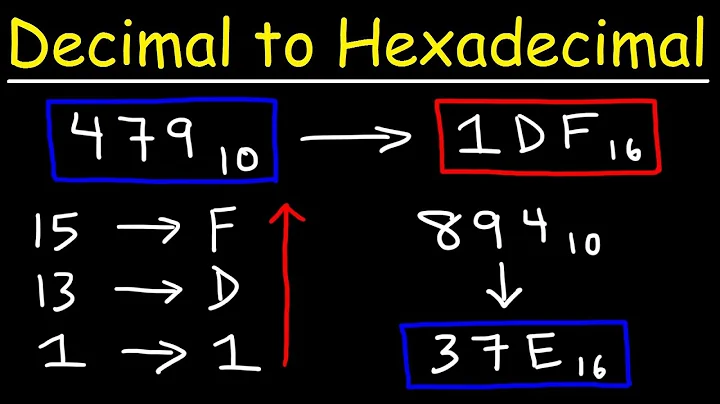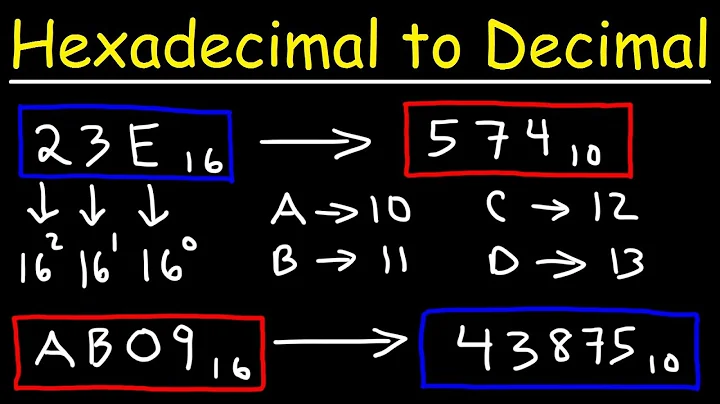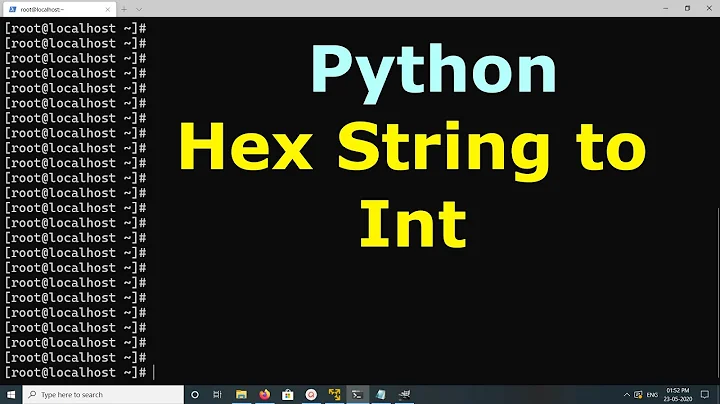Converting a hexadecimal string to a decimal integer
32,086
In most cases, you want to parse more than one hex byte at once. In those cases, use the hex crate.
parse this into an integer
You want to use from_str_radix. It's implemented on the integer types.
use std::i64;
fn main() {
let z = i64::from_str_radix("1f", 16);
println!("{:?}", z);
}
If your strings actually have the 0x prefix, then you will need to skip over them. The best way to do that is via trim_start_matches:
use std::i64;
fn main() {
let raw = "0x1f";
let without_prefix = raw.trim_start_matches("0x");
let z = i64::from_str_radix(without_prefix, 16);
println!("{:?}", z);
}
Related videos on Youtube
Author by
tsf144
Updated on July 09, 2022Comments
-
tsf144 almost 2 years
I'm writing a Rust program that reads off of an I2C bus and saves the data. When I read the I2C bus, I get hex values like
0x11,0x22, etc.Right now, I can only handle this as a string and save it as is. Is there a way I can parse this into an integer? Is there any built in function for it?
-
tsf144 over 8 yearsThat's great, thanks! Just to clarify, the '[2..]' is how you skip the first two spaces? (like over '0' and 'x')
-
 Vladimir Matveev over 8 years@tsf144, it is slicing syntax.
Vladimir Matveev over 8 years@tsf144, it is slicing syntax.&raw[2..]is a substring ofrawstarting at the second byte ofraw. -
 Shepmaster over 8 years@tsf144 Just what Vladimir said. The important part is that it is bytes. In this case, it looks like you have ASCII-encoded strings, so one character == one byte.
Shepmaster over 8 years@tsf144 Just what Vladimir said. The important part is that it is bytes. In this case, it looks like you have ASCII-encoded strings, so one character == one byte. -
 Jake Ireland about 3 yearsDoes this code fail on a 32-bit machine? You can do the same thing but replacing
Jake Ireland about 3 yearsDoes this code fail on a 32-bit machine? You can do the same thing but replacingi64withisizeso that it supports the architecture of the machine you run it on. -
 Shepmaster about 3 years@JakeIreland no, this does not fail on a 32-bit machine.
Shepmaster about 3 years@JakeIreland no, this does not fail on a 32-bit machine.











